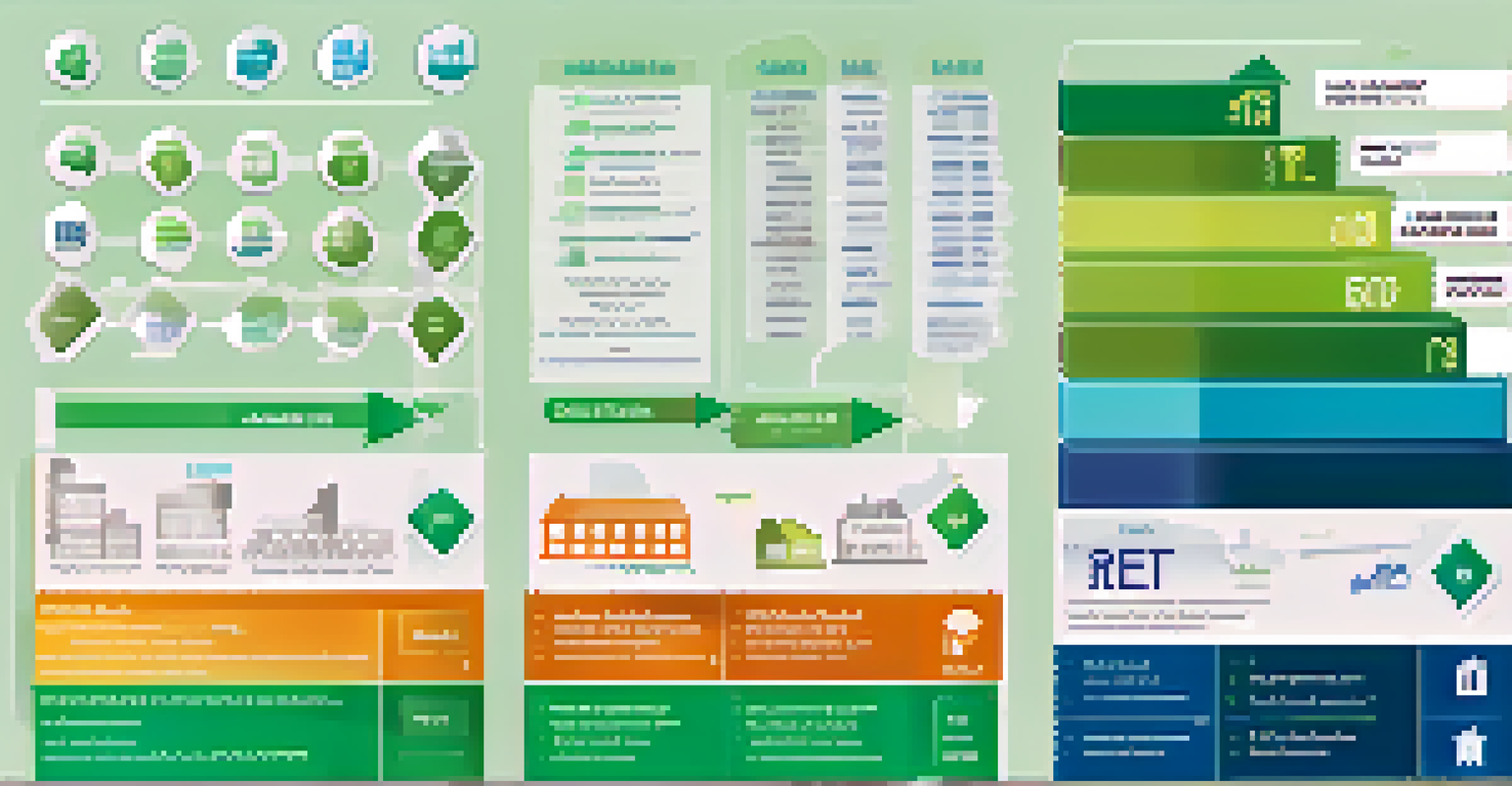Real Estate Investment Trusts: A Path to Wealth Creation

Understanding Real Estate Investment Trusts (REITs)
Real Estate Investment Trusts, or REITs, are companies that own, operate, or finance income-producing real estate. They allow individual investors to earn a share of the income produced through commercial real estate ownership without actually having to buy, manage, or finance any properties themselves. This makes REITs an accessible avenue for those looking to invest in real estate without the heavy lifting.
Real estate cannot be lost or stolen, nor can it be carried away. Purchased with common sense, paid for in full, and managed with reasonable care, it is about the safest investment in the world.
The key appeal of REITs is that they provide a way for average investors to participate in the real estate market. Typically, these trusts are publicly traded on major stock exchanges, similar to stocks. This liquidity means you can buy and sell shares just like any other stock without the complexities of property transactions.
Understanding the structure of REITs can help demystify this investment option. They generally pay out at least 90% of their taxable income as dividends to shareholders, which can lead to attractive yield potential. This makes them an appealing choice for income-seeking investors.
Benefits of Investing in REITs
Investing in REITs comes with a host of benefits that can help grow your wealth. One major advantage is diversification; by investing in a REIT, you're gaining exposure to a portfolio of real estate assets rather than just one. This can reduce risk and increase the stability of your investment returns.

Another benefit is the potential for high dividends. Since REITs are required by law to distribute a large portion of their earnings, they often provide regular income streams to investors. For many, this can be a reliable source of passive income, making REITs particularly appealing for retirees or those looking to supplement their income.
REITs Simplify Real Estate Investing
Real Estate Investment Trusts (REITs) allow individuals to invest in real estate without the burdens of property ownership.
Furthermore, REITs can serve as a hedge against inflation. Real estate values and rents often increase over time, which can lead to rising payouts for REIT investors. This ability to keep pace with inflation adds an extra layer of financial security.
Types of REITs: Which One is Right for You?
There are several types of REITs, each catering to different investment strategies. Equity REITs, for instance, own and operate income-generating properties, such as shopping malls, apartment complexes, and office buildings. These are the most common type of REIT and often provide strong dividend yields.
The best investment on Earth is earth.
On the other hand, Mortgage REITs (mREITs) invest in real estate debt rather than physical properties. They earn income from the interest on mortgages, making them more sensitive to interest rate fluctuations. This can lead to higher yields but comes with increased risk, particularly in changing economic climates.
Lastly, Hybrid REITs combine both equity and mortgage strategies, offering a diversified approach. As you explore REIT options, consider your risk tolerance and investment goals to determine which type aligns best with your financial strategy.
How to Invest in REITs: A Simple Guide
Investing in REITs is relatively straightforward, making it accessible for most individuals. You can start by researching different REITs that align with your investment goals. Look for those with a solid track record, strong management teams, and favorable market conditions.
Once you've identified potential REITs, you can purchase shares through a brokerage account, just like you would with regular stocks. If you're new to investing, consider starting with a diversified REIT ETF (Exchange-Traded Fund), which can provide exposure to multiple REITs in one investment.
Diversification Lowers Investment Risk
Investing in REITs provides exposure to a variety of properties, which can help reduce risk compared to owning a single property.
It's also important to monitor your investments regularly. This means staying informed about the real estate market and the performance of your chosen REITs. Adjust your portfolio as needed to ensure it continues to meet your financial objectives.
Potential Risks of Investing in REITs
While REITs can be a lucrative investment, they do come with risks that investors should be aware of. Market risk is one of the most significant; like stocks, REIT prices can fluctuate based on market conditions and investor sentiment. This means the value of your investment can rise or fall, sometimes dramatically.
Interest rate risk is another concern, particularly for mortgage REITs. When interest rates rise, the cost of borrowing increases, which can negatively impact the profitability of both equity and mortgage REITs. This can lead to lower dividends and reduced stock prices.
Lastly, sector-specific risks can arise depending on the type of properties a REIT invests in. For instance, a REIT focused on retail properties may face challenges if e-commerce continues to grow. Understanding these risks can help you make informed decisions in your investment journey.
Tax Implications of REIT Investments
When investing in REITs, it's essential to understand the tax implications that come with them. Generally, REIT dividends are taxed as ordinary income, which can be higher than the capital gains tax rate. This means that your tax bill could be larger than expected, particularly if you receive significant dividend income.
However, there are strategies to mitigate tax burdens. For example, investing in REITs through tax-advantaged accounts like IRAs can help defer taxes until withdrawal. This allows your investment to grow without the immediate tax hit, maximizing your long-term wealth potential.
Understand Risks and Tax Implications
While REITs offer potential returns, investors must be aware of market risks and the tax treatment of dividends.
Additionally, some REITs offer qualified dividends that may be taxed at a lower rate. It's beneficial to consult a tax professional to navigate these complexities and optimize your investment strategy.
Conclusion: Is Investing in REITs Right for You?
In conclusion, investing in Real Estate Investment Trusts can be a path to wealth creation for many individuals. They offer a unique opportunity to diversify your portfolio, generate income, and gain exposure to the real estate market without the complexities of direct property ownership. However, as with any investment, it’s crucial to assess your financial goals and risk tolerance.
Before diving into the world of REITs, consider your investment strategy, the types of REITs that align with your objectives, and the potential risks involved. Conduct thorough research and stay informed about market trends to make educated decisions that can benefit your financial future.

Ultimately, whether or not REITs are right for you will depend on your individual circumstances and investment goals. With the right approach, they can be a powerful component of your wealth-building strategy.